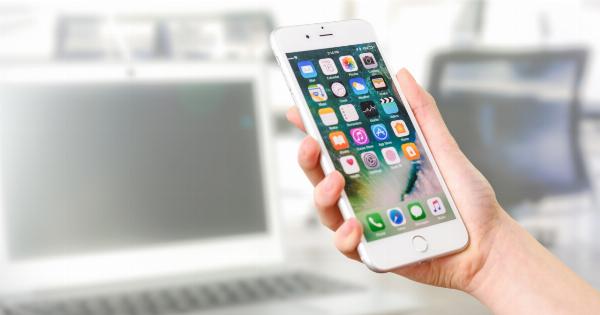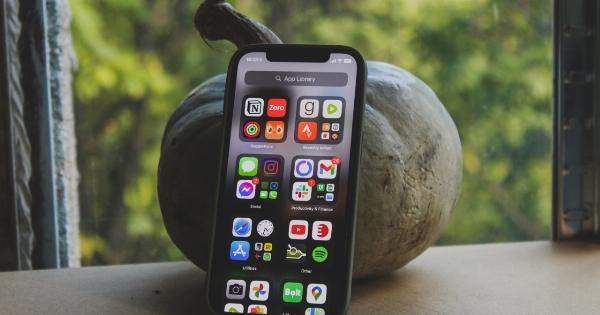Mobile apps have changed the way we live our lives. They have revolutionized the way we communicate, work, and even date.
As mobile technology continues to evolve, it has now entered the world of pregnancy with the introduction of pregnancy tracking apps.
What are Pregnancy Tracking Apps?
Pregnancy tracking apps are mobile applications that women can use to track their pregnancy progress.
These apps provide information about the changes happening to their bodies, as well as give tips and advice on how to stay healthy during the pregnancy.
One of the most popular pregnancy tracking apps is the ‘What to Expect’ app. This app has over 15 million users and has been downloaded more than 25 million times.
It provides users with a personalized pregnancy tracker, as well as daily tips, insights, and articles.
How do Pregnancy Tracking Apps Work?
Pregnancy tracking apps work by allowing users to input their due date and other key information, such as the date of their last menstrual cycle.
The app then uses this information to create a personalized pregnancy tracker that provides daily updates on the progress of the pregnancy.
The app also provides information on the different stages of pregnancy, including what to expect during each trimester, as well as what foods to eat and what exercises to do to stay healthy.
Why are Pregnancy Tracking Apps So Popular?
Pregnancy tracking apps have become popular for a number of reasons. Firstly, they provide women with a way to track their pregnancy progress and stay informed about what is happening to their bodies.
Secondly, they provide a social platform where women can connect with other pregnant women and share their experiences.
This can be particularly helpful for first-time mothers who may be feeling anxious or unsure about what to expect during their pregnancy.
Thirdly, many pregnancy tracking apps also provide features such as a kick counter, contraction timer, and baby name generator, which can be fun and helpful.
The Data Behind Pregnancy Tracking Apps
Pregnancy tracking apps have become an increasingly popular source of data for researchers studying pregnancy trends.
In 2019, researchers at the University of Oxford used data from the ‘What to Expect’ app to study patterns in pregnancy complications.
The study analyzed data from over 143,000 pregnancies and found that women who had a body mass index (BMI) above 30 were at increased risk of developing gestational diabetes and pre-eclampsia.
The study also found that women who used the app to track their weight gain were less likely to have a BMI above 30.
In 2020, researchers at the University of Utah used data from the ‘Ovia Pregnancy’ app to study the effects of air pollution on pregnancy.
The study analyzed data from over 27,000 pregnancies and found that exposure to air pollution during pregnancy was associated with an increased risk of preterm birth.
The Benefits of Using Pregnancy Tracking Apps
Pregnancy tracking apps can provide a number of benefits for women during pregnancy. These include:.
- Providing personalized information and advice about pregnancy
- Allowing women to track their weight gain and monitor for signs of complications
- Providing a social network for women to connect with other pregnant women
- Allowing women to prepare for childbirth with features such as contraction timers and kick counters
Challenges of Pregnancy Tracking Apps
While pregnancy tracking apps can provide many benefits, they also face a number of challenges. One of the main challenges is ensuring the accuracy of the data being collected.
Many pregnancy tracking apps rely on self-reported data from users, which can be inaccurate. For example, women may forget to update their app with important information such as high blood pressure or gestational diabetes.
Another challenge is ensuring the privacy and security of user data. Pregnancy tracking apps collect sensitive information about users such as their due date, weight, and medical history.
It is important that this information is kept secure and not shared without the user’s permission.
The Future of Pregnancy Tracking Apps
Pregnancy tracking apps are still a relatively new technology, and as such, they are constantly evolving. As technology continues to improve, pregnancy tracking apps are likely to become even more sophisticated and personalized.
One area of development is the use of artificial intelligence (AI) to provide more personalized information and advice for women during pregnancy.
AI could also be used to monitor for signs of complications or to provide early warning of potential risks.
Another area of development is the use of wearable technology such as smartwatches to track pregnancy progress. This technology could provide more accurate and reliable data than self-reported information.
The Power of Mobile Apps
Mobile apps have transformed the way we live our lives, from the way we communicate to the way we shop. The development of pregnancy tracking apps has added another dimension to the power of mobile technology.
By providing personalized information and advice, social networks, and tracking tools, pregnancy tracking apps are helping women to navigate the journey of pregnancy.
The data collected by these apps is also providing valuable insights for researchers studying pregnancy trends.
As technology continues to evolve, it is likely that pregnancy tracking apps will become even more sophisticated and personalized, providing women with an even greater range of benefits.





























